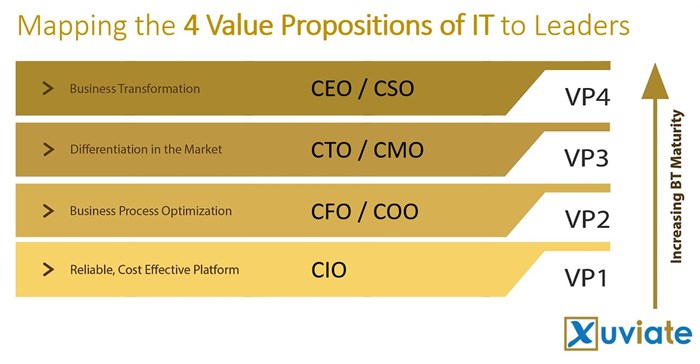
Top stories



ESG & SustainabilityRedisa calls on govt to fix South Africa’s “broken” waste management system
2 hours


HR & Management#TopEmployers2026: Nolo Thobejane on why people power KFC’s purpose
Shan Radcliffe 4 hours

More news










To explain what this is, I first need to take a step back and introduce you to some insightful research. In 2013 Cap Gemini Consulting and MIT published a landmark study that explored how digital leaders outperform their peers in every industry. They studied more than 400 large organisations and evaluated the profit generated by each. Next they plotted the results along two dimensions:
• Digital intensity (which measures the sophistication of the technology employed by organisations) versus
• Transformation management intensity (which includes intangibles such as structure, strategy, leadership and culture).
As expected, organisations that lead along both axes (the Digirati) produce significantly more profit than the Digital Beginners (in fact, a whopping 50% more). The results really become interesting when one compares the two possible routes for transforming into a Digirati company. One group of companies (the Fashionistas) gets so excited about (or perhaps scared of?) the digital opportunities that they decide to go all in from an IT perspective, without transforming their management practices and, even though the various technology projects may produce some notable wins, profit on average is still 37% below the Digerati.
Organisations that put more emphasis on developing the appropriate management competencies first (the Conservatives), on the other hand, significantly outperform their technology-led brethren. And this is a key insight (which can save huge amounts of money) for any business leader considering a digital transformation journey for their organisation. Now that we know that there is good reason for being deliberate and methodical, we need to better understand what is actually meant by 'transformation management intensity'.
In its most basic definition, transformation management intensity (as used in the Cap Gemini and MIT research) measures a business’ success in removing the silos between traditional business and IT domains and creating an effective partnership in pursuit of a digital transformation agenda. Ok, if this was a mouthful, think about it like this: All businesses have leaders who are expected to make strategic and operational decisions... the business leaders. Due to the increasing importance of information technology, however, businesses also have leaders who are expected to deploy IT in support of business goals... the IT leaders.
And here is the problem. The very fact that these two groups can be so easily defined and operate within their own domains is one of the key reasons for digital transformation initiatives to underperform and even stall. To overcome this challenge we need a new management approach that straddles the traditional business and technology silos. We call this business technology management (BTM). As Career Mash put it so nicely: It’s not just business. It’s not just technology. It’s business + technology + management.
Ask any business leader what needs to be done to better align business and IT role players and you will probably hear that the IT leaders have to learn the language of business. In short, they have to become business technology managers. Unfortunately, very few business leaders go on and ask what the business leaders have to do from their side.
During our research we have identified a total of four value propositions information technology could deliver to a business. Looking at who should be held accountable for delivering on each of the value propositions, it is very important to understand that only VP 1, which is concerned with having a reliable and cost-effective IT platform, can really be associated with the traditional IT leader.

The remaining three VPs (process automation, innovation and transformation) are in many cases led by IT-savvy business leaders who also have other responsibilities in the business (e.g. the CFOs, COOs, CMOs or even CEOs). And to be effective, these leaders need to learn the language of technology as it applies to their delivery domain. In short, they have to become business technology managers as well.
And now we finally have all the pieces to return to the original premise of IT being less important than we think:
1. Although all businesses will increasingly rely on digital technologies, we absolutely require our IT leaders (VP 1) to transform into business technology (BT) leaders.
2. As organisations mature digitally they will increasingly depend on non-IT leaders (who are redefining themselves as BT leaders) to work in partnership with their VP 1 colleagues from the traditional IT department.
For some this distinction will sound like semantics, but I can assure you that the implications, once fully grasped, are transformational.
Now that we have made a solid case for business technology leadership, the obvious question for many will be how one should go about acquiring these new skills. Since we could not find any authoritative guide to help with this, we performed our own research and published career development options for IT managers in South Africa.
What became very obvious during this research was that many of the South African training institutions still focus on either technology management (with a few business subjects) or business management (with a few technology subjects). There still is a great need for focused business technology management career development options in South Africa.
